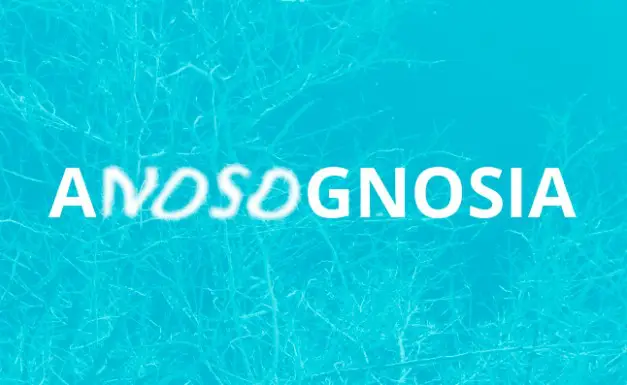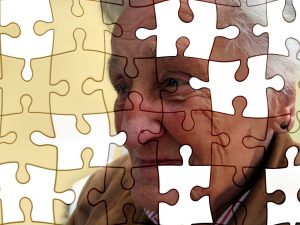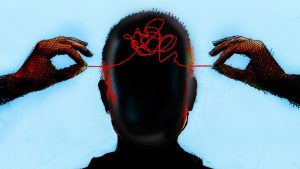Have you ever known someone who has a disability, but insists that they don’t have one? They may claim that their “hand is just tired” or that “they just had a bad day.” This is an example of anosognosia: a mental disorder that leaves people with no memory of their disability. Anosognosia can be caused by a stroke, brain injury, or dementia. In this blog post, we will discuss the symptoms and causes of anosognosia, as well as how it can affect people’s lives.
Contents
- 1 What Is Anosognosia?
- 2 Symptoms of Anosognosia
- 3 Causes of Anosognosia
- 4 Risk Factors of Anosognosia
- 5 Effect of Anosognosia On People
- 6 Relation Of Anosognosia With Other Condition
- 7 Asomatognosia v/s Anosognosia
- 8 Managing Challenges of Anosognosia
- 9 Opinion of People For Anosognosia
- 10 Treatment For Anosognosia
- 11 Supporting Someone With Anosognosia
- 12 Conclusion
- 13 A Word From Therapy Mantra
What Is Anosognosia?
Anosognosia is a mental disorder that leaves people with no memory of their disability. They may be completely unaware that they are impaired in any way, and may even become angry or defensive if someone tries to talk to them about it. This can occur as a result of brain damage from an accident or stroke, but sometimes there is no clear cause.
Symptoms of Anosognosia
The symptoms of this can vary depending on the person but often includes:
- A lack of awareness or understanding about their disability.
- People with it may deny that they are impaired in any way, or act as if their disability doesn’t exist.
- They may also become angry or defensive if someone tries to talk to them about it.
Causes of Anosognosia
The causes of this can be:
- The cause of it is still not fully understood, but it is believed to be caused by damage to the right side of the brain.
- This damage can interfere with the ability to understand or process information about oneself, which results in the lack of awareness about any disability.
Risk Factors of Anosognosia
- Anyone can develop it, but it is more common in people who have had a stroke or brain injury.
- It is also more common in people with dementia or Alzheimer’s disease.
Effect of Anosognosia On People
It can affect peoples lives in many ways such as:
- Anosognosia can be very frustrating and isolating for the person affected and their loved ones.
- People with anosognosia may not be able to do things on their own and may need help with everyday tasks like bathing, dressing, and cooking.
- They may also need help managing money or medications and may require supervision to ensure they are safe.
- If you think you or someone you know might have anosognosia, it is important to seek medical help. There are treatments available that can help improve the quality of life for people with this disorder.
Relation Of Anosognosia With Other Condition
There is a relation with other conditions like:
- Dementia: In people with dementia, anosognosia is often caused by damage to the parts of the brain that control thought and memory.
- Alzheimer’s Disease: Alzheimer’s disease is a type of dementia that can cause anosognosia.
- Stroke: A stroke can damage the right side of the brain and lead to anosognosia.
- Brain Injury: Any injury to the brain can lead to anosognosia.
Asomatognosia v/s Anosognosia
The difference between them is very simple:
- Asomatognosia is a condition that causes people to lose awareness of their bodies. They may not be able to recognize or identify parts of their body, and may even feel like they are someone else.
- Anosognosia is a condition that causes people to lose awareness of their disability. They may not be able to recognize or identify that they have a problem, and may act as if their disability doesn’t exist
Challenges Of Living With Anosognosia
An unknown disorder brings a lot of challenges to not only the individual but also to those who are taking care of that person without having knowledge about what this disease entails.
- It becomes difficult when one has to deal with a loved one who is unresponsive to questions and unaware of his or her surroundings.
- It’s like living in an invisible world where you are struggling emotionally, socially, and psychologically.
- You feel isolated and alone because you don’t have anyone to talk to about your experiences.
- The lack of knowledge about the disease can make it difficult for caregivers to provide the necessary support that is needed for both the individual with it and themselves.
- There is also a sense of guilt that comes along with not being able to do anything for the person you love. And yet, we must continue living our lives and take care of ourselves as well. The challenges are real, but so are the rewards.
Managing Challenges of Anosognosia
There are a few ways that caregivers can manage the challenges of these, such as:
- Education: Caregivers should educate themselves about anosognosia and learn as much as they can about the disorder.
- Support Groups: There are often support groups available for caregivers of people with this. These groups can be a great source of support and information.
- Communication: It is important to communicate openly and honestly with the person affected by this. Let them know what you are doing to help them, and ask them what they need from you.
- Regular Check-Ins: Make sure to check in regularly with the person affected by it to see how they are doing and whether they need any help.
Opinion of People For Anosognosia
The outlook for people can be:
- The outlook for people with anosognosia depends on the cause and severity of their condition.
- Some people may improve over time with treatment, while others may not be able to improve at all.
- Furthermore, it is important to seek medical help if you think you or someone you know might have it, as there are treatments available that can help improve quality of life.
Treatment For Anosognosia
The treatment for anosognosia will vary depending on the person’s condition and severity of symptoms. Some treatments that may be helpful are:
- Therapy: Therapy can help people with anosognosia understand their disability and learn to cope with it.
- Medications: Medications may be prescribed to help improve awareness and understanding of the disorder.
- Support Groups: Support groups can provide support and education for people affected by anosognosia and their loved ones.
If you think you or someone you know might have anosognosia, it is important to seek medical help. There are treatments available that can help improve the quality of life for people with this disorder.
Therapy Options For Anosognosia
There is no one-size-fits-all treatment for it, but some treatments that have been shown to be effective include:
- Cognitive Behavioral Therapy (CBT): CBT can help people with anosognosia become more aware of their disability and understand how it affects their life.
- Drug Therapy: Drugs like antipsychotics can help reduce the symptoms of anosognosia.
- Behavioral Management: Behavioral management techniques can help people with anosognosia better cope with their disability.
- Family Support: Family support is important for loved ones of someone with anosognosia, as they may need help managing the person’s care.
Supporting Someone With Anosognosia
If you know someone who is suffering from anosognosia, there are a few things you can do to help such as:
- Be supportive and understanding. Let them know that you are there for them and that you understand what they are going through.
- Encourage them to seek treatment. Treatment for anosognosia can help improve the quality of life for people affected by the disorder.
- Educate yourself about anosognosia. The more you know about the condition, the better equipped you will be to support your loved one.
- Furthermore, anosognosia is a mysterious mental disorder that leaves people with no memory of their disability.
- However, often includes a lack of awareness or understanding about their disability People with anosognosia may not be able to do things on their own and may need help with everyday tasks like bathing, dressing, and cooking.
- They may also need help managing money or medications and may require supervision to ensure they are safe.
- If you think you or someone you know might have anosognosia, it is important to seek medical help as there are treatments available that can improve the quality of life for people with this disorder.
Conclusion
Anosognosia is a neurological condition that can cause people to not be able to identify their disability. They may also feel like the symptoms are not as bad as they actually are. This may lead them to have less motivation for recovery, which could worsen their health conditions. It’s important for caregivers and loved ones of those with this disorder to understand how it affects them because sometimes the person with anosognosia will refuse help or even deny there is anything wrong at all! We hope you found these tips helpful in understanding more about what an individual might go through when dealing with Anosognosia.
A Word From Therapy Mantra
Your mental health — your psychological, emotional, and social well-being — has an impact on every aspect of your life. Positive mental health essentially allows you to effectively deal with life’s everyday challenges.
Also, at Therapy Care, we have a team of therapists who provide affordable online therapy to assist you with issues such as depression, anxiety, stress, relationship, OCD, LGBTQ, and PTSD. You can take our mental health test. You can also book a free therapy or download our free Android or iOS app.










